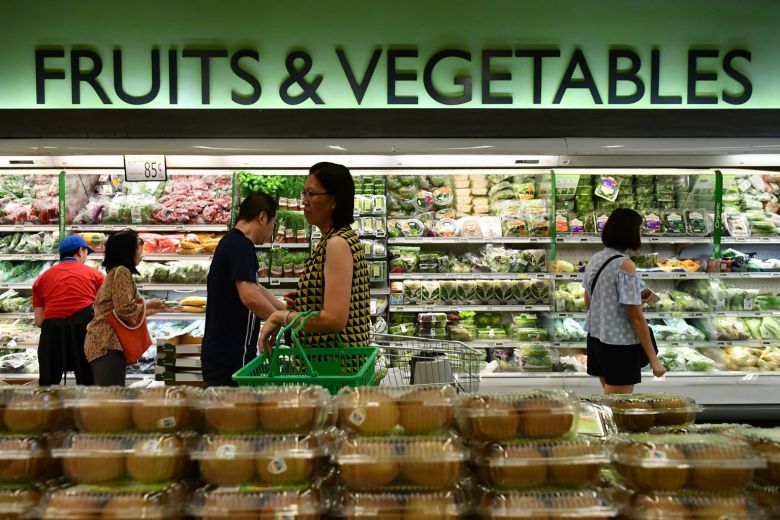Singapore consumer prices rise a muted 0.5% in February
SINGAPORE – Singapore’s headline inflation picked up in February but stayed muted, after having been flat the month before.
The consumer price index – the main measure of inflation – rose 0.5 per cent in February compared to the same month a year ago, according to Department of Statistics data released on Friday (March 23).
This was in line with economists’ estimates of a 0.4 per cent increase.
The rise in headline inflation was due to a smaller decline in accommodation costs, and to a lesser extent, a stronger pickup in the prices of services and food, which more than offset the decline in private road transport inflation.
Healthcare and education continued to see steady rises. Healthcare inflation was 2.5 per cent, up from 2.3 per cent in January, while education costs rose 2.9 per cent, comparable to January’s 2.8 per cent rise.
Core inflation, which excludes the cost of accommodation and private road transport for a better gauge of everyday expenses, was 1.7 per cent in February, up from 1.4 per cent in January. This indicator is a key consideration for the Monetary Authority of Singapore’s (MAS) monetary policy moves, with the next policy statement due in April.

Accommodation costs fell 3.6 per cent in February, compared to a 5.3 per cent fall in January. Service and conservancy charges (S&CC) rebates had been disbursed to HDB households in January 2018, but not in the previous January.
Private road transport inflation continued to moderate, coming in at 0.6 per cent in February, down from 1.6 per cent the previous month. This was largely due to a smaller increase in petrol prices, as well as lower Electronic Road Pricing charges.
Services inflation increased to 1.9 per cent in February from 1.3 per cent in January, as a rise in air fares and holiday expenses – following January’s year-on-year decline – more than offset the smaller rise in recreational and cultural services fees.
Food inflation was 1.5 per cent in February, up from 1.1 per cent in January, but comparable to the December and November rates of 1.4 per cent and 1.5 per cent respectively. This reflected a larger increase in the prices of non-cooked food items, and – to a lesser extent – the cost of prepared meals, due to the seasonal uptick in food prices associated with Chinese New Year.
Looking ahead, imported inflation is likely to rise mildly as global demand improves amid ample supply in key commodity markets, the MAS and the Ministry of Trade and Industry said in a joint statement.
Global oil prices are expected to rise only slightly in 2018 compared to 2017. Global food commodity prices are also expected to rise modestly, though localised shocks in regional supply sources could cause domestic food prices to fluctuate.
Overall, cost pressures in the economy should remain relatively restrained, said the MAS and the MTI. Although labour market conditions have improved recently, the gradual absorption of previously accumulated slack will temper wage pressures in the near term. Non-labour costs such as retail rentals remain subdued.
Core inflation is expected to remain in the 1 to 2 per cent range this year, having averaged 1.5 per cent in 2017.
Headline inflation, which came in at 0.6 per cent in 2017, is projected to range from zero to 1 per cent this year.
Accommodation costs should continue to dampen headline inflation this year, though to a lesser extent than last year. Private road transport inflation is likely to moderate as the inflationary impact from previous measures – such the expiry of one-year road tax rebates in August 2016 – dissipates.
Source: http://www.straitstimes.com/business/economy/singapore-consumer-prices-up-05-in-february


 English
English




